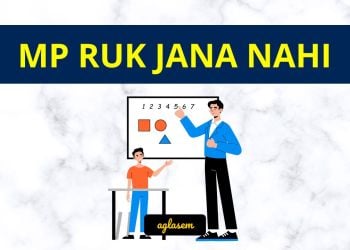Class 12 Business Studies Planning – Get here the Notes for Class 12 Business Studies Planning. Candidates who are ambitious to qualify the Class 12 with good score can check this article for Notes. This is possible only when you have the best CBSE Class 12 Business Studies study material and a smart preparation plan. To assist you with that, we are here with notes. Hope these notes will helps you understand the important topics and remember the key points for exam point of view. Below we provided the Notes of Class 12 Business Studies for topic Planning.
- Class: 12th
- Subject: Business Studies
- Topic: Planning
- Resource: Notes
CBSE Notes Class 12 Business Studies Planning
Candidates who are pursuing in Class 12 are advised to revise the notes from this post. With the help of Notes, candidates can plan their Strategy for particular weaker section of the subject and study hard. So, go ahead and check the Important Notes for Class 12 Business Studies Planning.
1. Planning Planning can be defined as “thinking in advance what. is to be done. when it is to be done, how it is to be done and by whom it should be done.”
According to Fayol, “Planning is chalking out plan of action. i.e., the result envisaged in the line of action to be followed. the stages to go through the methods to use.”
2. Importance of Planning
(i) Planning Provides Directions Planning provides the directions to the efforts of employees. Planning makes clear what employees have to do. how to do etc.
(ii) Planning Reduces the Risk Uncertainty Planning helps the manager to face the uncertainty because planners try to force the future by making some assumptions. The plans are made to over come uncertainties.
(iii) Planning Reduces Over Lapping and Wasteful Activities Planning evaluates the alternatives uses of the available and prospective resources of the business and makes their must appropriate use.
(iv) Planning Promotes Innovative Ideas Planning requires high thinking and it is an intellectual process. So it makes the managers innovative and creative.
(v) Planning Facilitates Decision Making Planning helps the managers to look in to the future and make a choice from amongst various alternative courses of action.
(vi) Planning Establishes Standards for Controlling It has predetermined goal with which the actual performances are compared to find out deviation and suggest remedial measures.
3. Features of Planning
(i) Planning Focuses on Achieving Objective Planning is purposeful. It has no meaning unless it contributes to the achievement of predetermined organisational goals.
(ii) Planning is a Primary Function of Management PLanning is the primary or first function to be performed by every manager. No other function can be executed by the manager without performing planning function.
(iii) Planning is Pervasive Planning is essential for every sort of business activities. Every department whether, purchase, sales accounts, auditing, marketing etc needs systematic planning.
(iv) Planning is Continuous Planning is a never ending or continuous process because after making plans also one has to be in touch with the changes in changing environment and in the selection of one best way.
(v) Planning is Futuristic Planning always means looking ahead, it is never for the past. All the managers tTY to make predictions and assumptions for future.
(vi) Planning Involves Decision Making Planning choice making of the best possible alternative out of various alternatives.
4. Limitations of Planning
(i) Planning Leads to Rigidity Once plans are made to decide the future course of action the manager may not be in a position to change them.
(ii) Planning May Not Work in a Dynamic Environment
Business environment is very dynamic as there are continuously changes. It becomes very difficult. to forecast these future changes. Plans may fail if the changes are very frequent.
(iii) Planning Reduces Creativity With the planning the managers of the organisation start working rigidly and they become the blind followers of the plan only.
(iv) Planning Involves Huge Costs Planning process involves lot of cost because it is an intellectual process and companies need to hire the professional experts to carry on this process.
(v) Planning is a Time Consuming Success Lot of time is needed in developing planning premises.
(vi) Planning does not Guarantee Success Planning only provides a base for analysing future. It is not a solution for future course of action.
5. Planning Process
(i) Setting Objectives In planning function manager begin with setting up of objectives because all the policies procedures and methods are framed for achieving objectives only.
(ii) Developing Premises Premises refers to making assumptions regarding future. The assumptions are made on the basis of forecasting. Forecast is the technique of gathering information.
(iii) Identifying Alternative Courses of Action After setting up of objectives the managers make a list of alternatives through which the organisation can achieve its objectives.
(iv) Evaluating Alternative Courses After making the list of various alternatives along with the assumptions supporting them the manager starts evaluating each and every alternative.
(v) Selecting an Alternative The best. alternative is selected but as such there is no mathematical formula to select the best alternative. Some times instead of selecting one alternative a combination of different alternatives can also be selected.
(vi) Implementing the Plan This is the step where other managerial functions also come in to the picture. The step is concerned with putting the plan into action i.e., doing what is required.
(vii) Follow-up Action Planning is a continuous process so the manager’s job does not get over simply by putting the plan into action. The manager monitor the plan carefully while it is implemented.
6. Types of Plans
(i) Objectives Objectives are the ends towards which the activities are directed. They axe the end result of every activity. e.g., increase in sale by 10%.
(ii) Strategy A strategy is a comprehensive plan to achieve the organisational objectives.
(iii) Policies Policies are genera] statements that guide thinking or channelise energies towards a particular direction.
(iv) Procedures Procedures are required steps established in advance to handle future conditions. The procedure can be defined as the exact manner in which an activity has to be accomplished.
(v) Method Methods provide the prescribed ways or manner in which a task has to be performed considering the objective.
(vi) Rule Rules are specific statements that inform what is to be done. They do not allow for any flexibility or discretion.
(vii) Programme Programme are detailed statements about a project which outlines the objectives, policies, procedures, rules.
(viii) Budget A budget is a statement of expected results expressed in numerical terms
Class 12 Key Points, Important Questions & Practice Papers
Hope these notes helped you in your schools exam preparation. Candidates can also check out the Key Points, Important Questions & Practice Papers for various Subjects for Class 12 in both Hindi and English language form the link below.
Class 12 NCERT Solutions
Candidates who are studying in Class 12 can also check Class 12 NCERT Solutions from here. This will help the candidates to know the solutions for all subjects covered in Class 12th. Candidates can click on the subject wise link to get the same. Class 12 Chapter-wise, detailed solutions to the questions of the NCERT textbooks are provided with the objective of helping students compare their answers with the sample answers.
Class 12 Mock Test / Practice
Mock test are the practice test or you can say the blue print of the main exam. Before appearing in the main examination, candidates must try mock test as it helps the students learn from their mistakes. With the help of Class 12 Mock Test / Practice, candidates can also get an idea about the pattern and marking scheme of that examination. For the sake of the candidates we are providing Class 12 Mock Test / Practice links below.
Class 12 Exemplar Questions
Exemplar Questions Class 12 is a very important resource for students preparing for the Examination. Here we have provided Exemplar Problems Solutions along with NCERT Exemplar Problems Class 12. Question from very important topics is covered by Exemplar Questions for Class 12.
Class 12 Business Studies Notes Maths Notes Economics Notes Sociology NotesTo get study material, exam alerts and news, join our Whatsapp Channel.




